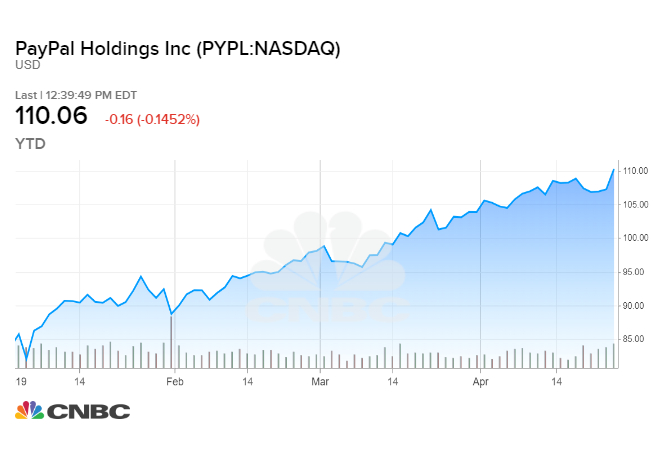PayPal is on a spending spree. Its latest mega-investment in Uber this week hints at a larger strategy to compete abroad.
The payments giant is investing $500 million Uber ahead of the highly anticipated IPO, according to Uber’s updated S1 filing. In March, PayPal invested $750 million in Argentina’s e-commerce giant MercadoLibre.
“I don’t think you spend that kind of money unless it’s part of a global strategy to enable these new super-platforms,” said Ryan Gilbert, a partner at venture capital firm Propel Ventures. “PayPal needs to step on the growth gas pedal and these investments will buy the company access to millions of global customers.”
Uber operates in more than 60 countries, and 400 cities. PayPal has a global footprint, too. It’s available in more than 200 countries and regions and supports 25 currencies. By handling payments on the back-end for Uber, the company is positioning itself to benefit from some of some of Uber’s potential growth.
“While baseline payments products have revolved rapidly over the recent fintech investment cycle, customer acquisition strategies have not,” Gilbert said. “I expect we will see similar investments in future.”
The deal builds on an existing partnership. PayPal is already Uber’s lead payment processing partner in the U.S. and Australia, and has worked with the ride-hailing company since 2013. In a LinkedIn post, PayPal CEO Dan Schulman called it a “another significant milestone” in the company’s journey to be a “platform partner of choice, helping to enable global commerce by connecting the world’s leading marketplaces and payment networks.”
Shares of PayPal have been on a tear this year. The stock is up 30% year to date, and has rallied more than 44% year over year. It began as a pure e-commerce play and the payment option for eBay, which bought PayPal in 2002. Its founders and early employees include Elon Musk, Peter Thiel, Reid Hoffman, Max Levchin, and other members of what’s sometimes known as the “PayPal Mafia.”

It spun off from eBay again in 2015 and has since expanded way beyond online check-out. PayPal is leaning into mobile payments, which makes up roughly 40 percent of its business, and small business lending.
Its popular peer-to-peer payment app Venmo has been a part of this growth strategy, and is also integrated with Uber and UberEats. Total payment volume for Venmo grew 73% year over year to $21 billion in the first quarter, the company said this week. Overall, PayPal said it has a total 277 million total customer accounts.
Still, it faces fierce competition on a global scale.
Tech giants Alibaba and Tencent both dominate consumer finance in China thanks to their popular mobile apps. In North America, Amazon, Google, and Apple are also taking up an increasingly larger share of customers’ wallets with their own payment or digital wallet options. Each of those payment methods grew from a “seamless integration” into an existing platform, according to Peter Gordon, CEO of PRMPayments.
Alipay is Alibaba’s e-commerce payment method. Amazon Pay is embedded into Amazon’s platform. WeChat was a communication application in Asia that moved into payments. PayPal could achieve that through Uber.
“The point is, these wallets need distribution in e-commerce and mobile applications,” Gordon said. “This will align PayPal with Uber as its lead payment method to be distributed globally and allow users to have friction-less experience by entering their PayPal email.”
Wall Street is also watching PayPal’s global ambitions. The MercadoLibre partnership “underscores the global value proposition that PayPal offers other high-growth marketplaces,” according to KeyBanc analyst Josh Beck. The firm raised its price target earlier this year to reflect that deal’s potential.
